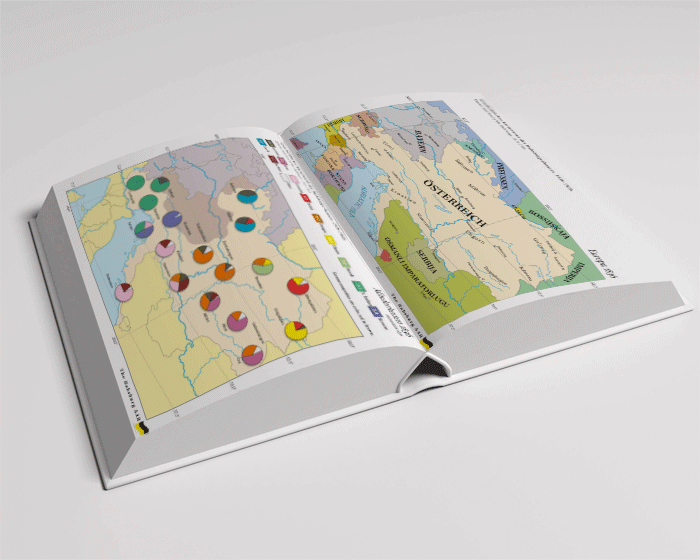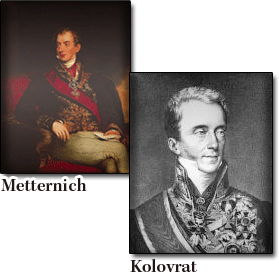

Please notice, that I am not a native English speaker but attended English classes since 6th grade. This AAR will be particularly written for improving my writing skills and preparing myself for the IELTS, which I am planning to take early next year. I would be very, very happy if some native speakers following my AAR will give me some advice and correct crucial mistakes in my text.
TABLE OF CONTENTS
Chapter I. - Europa 1836.
Chapter II. - Austrian Expansion
Chapter III
Chapter IV - Struggle with the Bear
CHAPTER I

And this has been the situation that he had to contend with in 1836:
The economy was all but developed; one could have even said non-existent. Whilst Austria had hardly any factories, she possessed considerable amounts of coal in the North. Also the Eastern part is known for its respectable wood and timber supplies.
Several minorities were demanding civil rights as well as autonomy from the Crown. In addition, Austria’s brother-state Prussia was rising and assuming leadership among the North German States. From the South, the Ottoman Empire was trying to regain his former Serbian and Hungarian territories. One must not also forget the threat lifted by the mighty Russian Empire. The bottom line is: Austria is facing major problems and it is not clear whether she will overcome all problems or whether she will fail and fall into oblivion.
Habsburgian Atlas, page 1: Europa 1836.
One can imagine how difficult this must have been, since the Emperor was mentally disabled. Therefore, a Secret Conference was established, which had supposedly the real power of the Empire. It was composed out of four high appreciated Austrians, one of which was Metternich, though he was not the chairman of the institution. The other men were: Archduke Louis of Austria, Archduke Franz Carl of Austria (the Emperor’s brother) and Metternich’s Antagonist Count Franz Anton von Kolowrat-Liebsteinsky.
After days and weeks of discussion, a general plan was made: The Austrian sphere in Northern Italy was to be given up; instead, the main focus was set on Southern Germany: Prussian Sigmaringen was to acquire for excluding the Prussians of Southern Germany. Another big problem to approach was the minority question. Whilst the Devolution, that is the act of giving power from a central authority or government to an authority or a government in a local region, was in favour of Count Franz Anton and Franz Carl, Metternich supported a hard oppression and undoubted governance out of Vienna.
Habsburgian Atlas, page 2: minorities 1836.
But now the war against Prussia had to be prepared. The Austrian forces involved 96’000 men, 18’000 of them staying in Austria and Hungary for defending against possible rebels. On January 1, 1936 a surprising offer by the Belgian government was accepted, thus allying the Empire with Belgium. Alliance proposals were also sent to Bavaria, Wurttemberg and Baden. But all this was not enough, the Council looked forward to ally with at least one further Great Power, though it was clear that none of them would join the Austrian war. On January 2, the I, II. & III and IV Armies were given order to move to Innsbruck, Tesin and Königsgrätz respectively. The same day, a decision to explore transportation technologies was set and Eduard Gerlich hired. Though having no leader, the Austrian Imperial Navy set sails and departed in the direction of the Balticum. January, 3 saw the allying with Two Sicilies and Krakow. Does one care about tiny wars in Central Asia? No, one does not. Therefore, the Anglo-Nepalese War will not be further mentioned. Very significant, however, is the Anglo-French Alliance, signed on January 7.
In the middle of the month, news arrived in Vienna, that Prussia and the UK signed an alliance. Thus, a simple war against Prussia would be impossible. After a month or so, new taxes were introduced. Hitherto set for all people to 50%, they were cut down on 12%, 8% and 0%. Nevertheless the state was swimming in money. Metternich’s plan to improve the economy worked out and in the end of February, the furniture factory was to be expanded. As soon as possible, an alliance offer to France was sent, though it was rejected immediately.
On May 6, however, the Austrian ambassador in Berlin passed over a declaration of war. Only a few hours later, all Prussian and Austrian allies joined the war, except the UK on Prussian and Sardinia-Piemont on Austrian side. The whole war was bloody and exhausting. Shortly after the campaign’s beginning, Austrian troops were defeated in Liegnitz on June 27. The I. Army besieged Sigmaringen, eventually conquering it on August 14. Meanwhile, the whole Austrian Imperial Army was annihilated in the Balticum, thus leaving Austria without any ships.

But the tide was turning. After the successful occupation of Prussian Kattowitz, several Prussian Brigades invading Bohemia were destroyed. In the decisive battle of Weimar, however, the united South German forces suffered more than 30’000 men.
Whilst war was going on, the new Upper House was to reassemble. Main winners of the political momentum were the Conservatives, who raised their percentage to 62.6%. The Liberals on the other hand lost more than 2 percent. Therefore, Metternich’s position was improved in contrast to the Liberals.
The year 1837 saw the finishing of the railroad exploration and the first railroad tracks. Moreover, the Secret Council decided to emphasize the Army’s technologies and yet was supporting the Army Professionalism.
The war was finally coming to an end – Prussia had to fight on several fronts, of which the Belgian one was the most exposed. Vienna was still wondering, however, when the Belgian government decided to claim the Nordrhein region. This demand was neither supported by Austria nor by any other ally.
After all, on July 6 Prussia received a peace offer, suggesting to hand over Sigmaringen to Austria. Their forces had been too spread to become any danger. The Belgian claim was not even discussed. Two days later, the contract was signed in Prague and the troops demobilized. The hitherto existent and strong Holy Alliance, however, was finally dissolved.
The war showed clearly, how unable Austria was. Unprofessional, unskilled troops were marching across Bohemia and Silesia, without any serious plan. The whole Bohemian front was full of gaps and lacking a serious military infrastructure. Therefore, Metternich suggested to build new brigades, in particular cavalry units. Also, a new Kriegsmarine shall be build. Meanwhile, the furniture factory expanded, despite the state’s lacking funds.
-----
Comments are highly desired.
Last edited:


